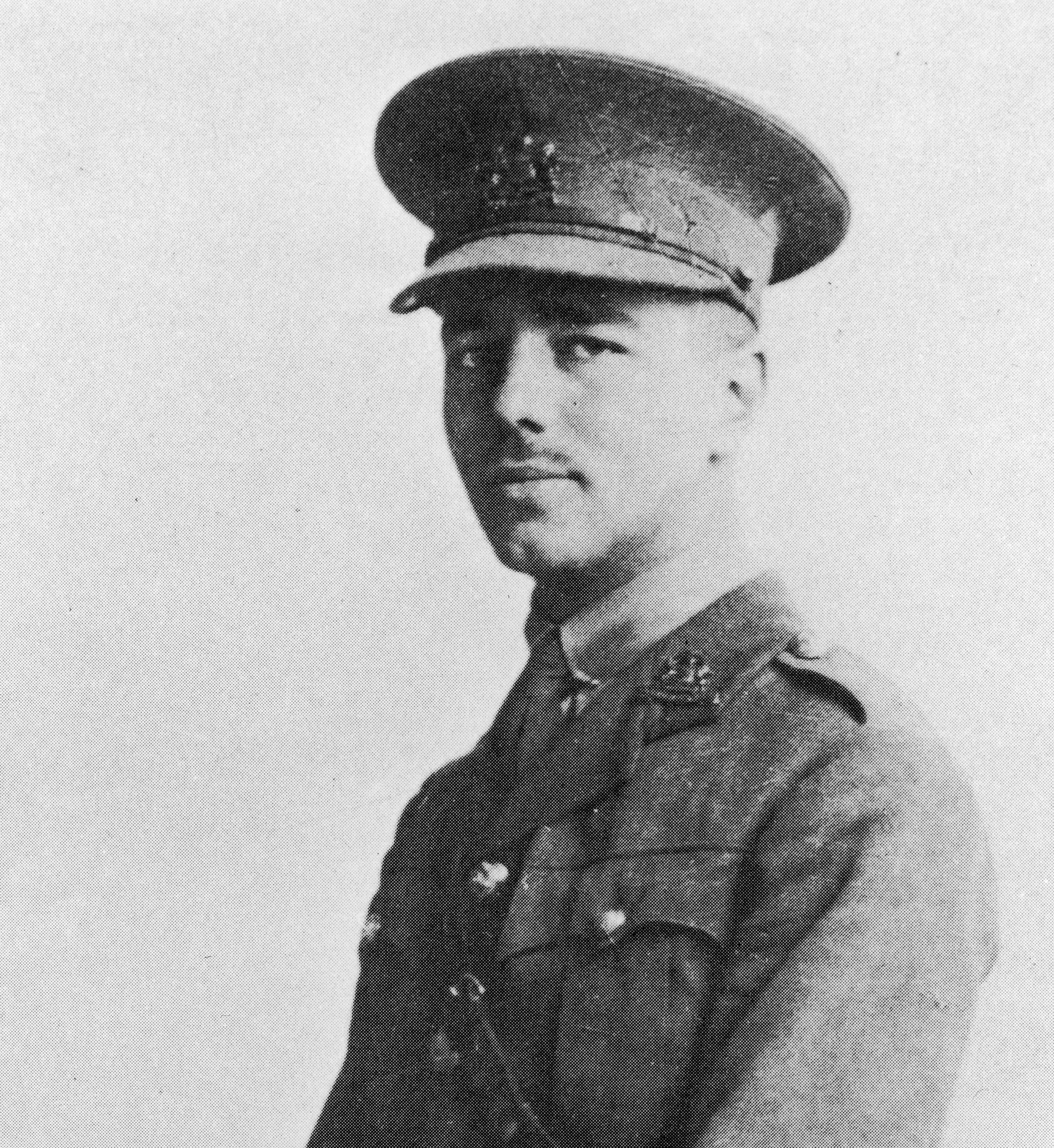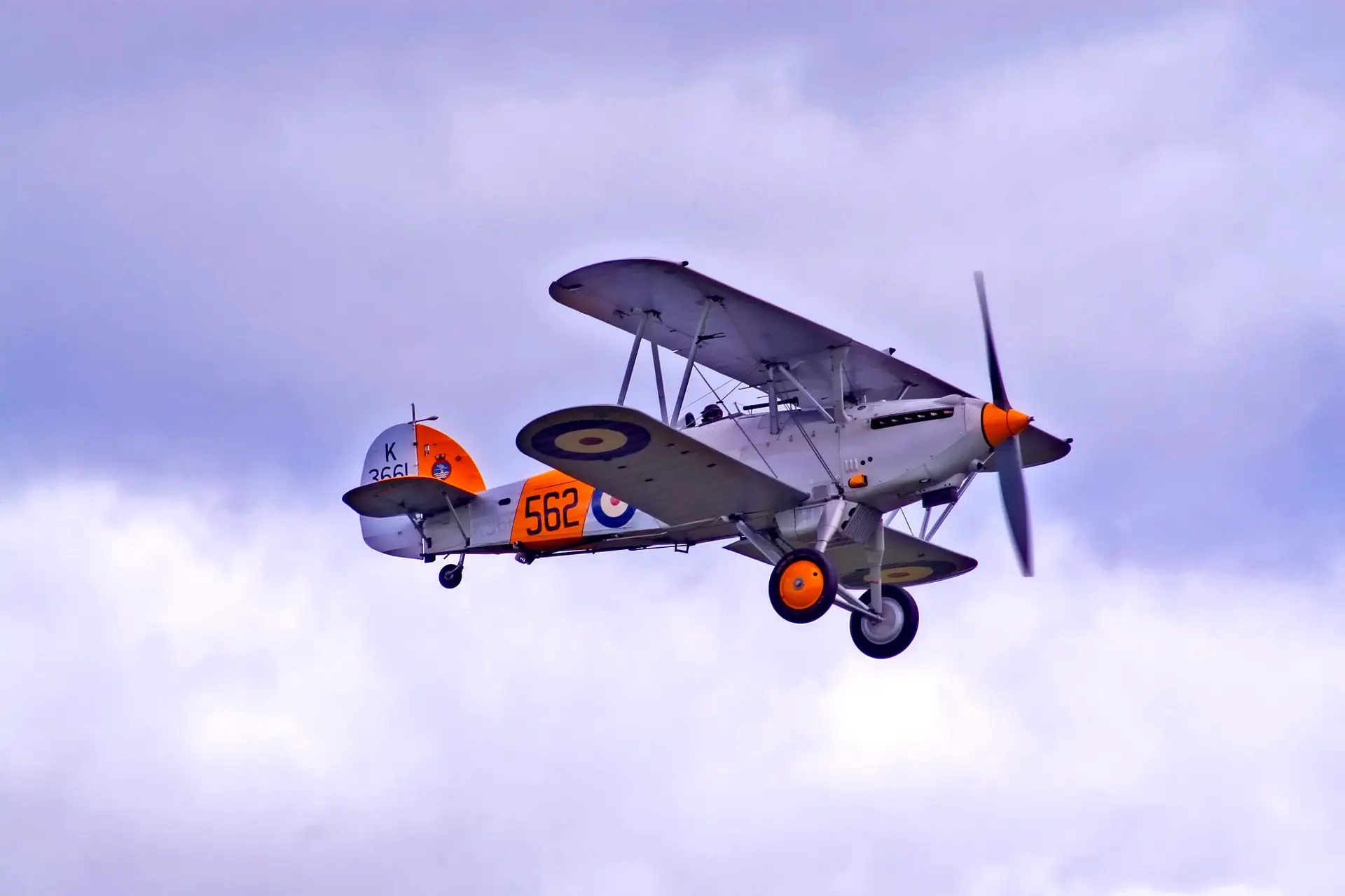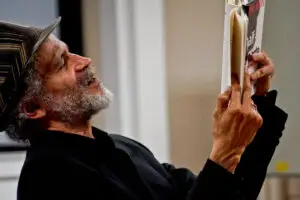Disabled, Wilfred Owen Poem Analysis/Annotations
- December 17, 2018

Disabled, Wilfred Owen

FULL POEM - SCROLL DOWN FOR LINE-BY-LINE ANALYSIS
He sat in a wheeled chair, waiting for dark, And shivered in his ghastly suit of grey, Legless, sewn short at elbow. Through the park Voices of boys rang saddening like a hymn, Voices of play and pleasure after day, Till gathering sleep had mothered them from him.
About this time Town used to swing so gay When glow-lamps budded in the light-blue trees And girls glanced lovelier as the air grew dim, —In the old times, before he threw away his knees. Now he will never feel again how slim Girls’ waists are, or how warm their subtle hands, All of them touch him like some queer disease.
There was an artist silly for his face, For it was younger than his youth, last year. Now he is old; his back will never brace; He’s lost his colour very far from here, Poured it down shell-holes till the veins ran dry, And half his lifetime lapsed in the hot race,And leap of purple spurted from his thigh. One time he liked a bloodsmear down his leg, After the matches carried shoulder-high. It was after football, when he’d drunk a peg, He thought he’d better join. He wonders why . . . Someone had said he’d look a god in kilts.
That’s why; and maybe, too, to please his Meg, Aye, that was it, to please the giddy jilts, He asked to join. He didn’t have to beg; Smiling they wrote his lie; aged nineteen years. Germans he scarcely thought of; and no fears Of Fear came yet. He thought of jewelled hilts For daggers in plaid socks; of smart salutes; And care of arms; and leave; and pay arrears; Esprit de corps; and hints for young recruits. And soon, he was drafted out with drums and cheers.
Some cheered him home, but not as crowds cheer Goal. Only a solemn man who brought him fruits Thanked him; and then inquired about his soul. Now, he will spend a few sick years in Institutes, And do what things the rules consider wise, And take whatever pity they may dole. To-night he noticed how the women’s eyes Passed from him to the strong men that were whole. How cold and late it is! Why don’t they come And put him into bed? Why don’t they come?

SUMMARY/ANALYSIS
The poem ‘Disabled’ poignantly portrays the physical and psychological trauma suffered by a young man enlisted to fight for Britain in World War One. Wilfred Owen highlights the extent of this trauma by comparing the man’s post-war life of misery to his jubilant youth, in conjunction with literary techniques including juxtapositions and dark, depressing metaphors.
LINE-BY-LINE ANALYSIS
He sat in a wheeled chair, waiting for dark,
The dark is a metaphor for death, Owen describes this man’s life as so useless and futile that death seems like a relief among the monotony of life.
And shivered in his ghastly suit of grey,
Shivered adds a sense of vulnerability and weakness to the man. Ghastly suit of grey is a dark, menacing use of imagery. The colour grey is very often used as imagery for death in literature.
Legless, sewn short at elbow. Through the park
Sewn short at the elbow takes us vividly back to the aftermath of the man’s injury and portrays a cumbersome ambulance service on the front line of World War I, as “sewn” doesn’t sound very professional or meticulous.
Voices of boys rang saddening like a hymn,
The boys’ voices remind him of what he’s lost. The word hymn adds religious connotations, Owen’s way of bringing into question the existence of God amongst the pain and anguish of war.
Voices of play and pleasure after day,
The repetition of the ‘pl’ sound in play and pleasure adds a sense of rhythm, showing the man engaging in a sense of nostalgia for a second. The caesura at the end of the line represents a pause in his thoughts and brings him back down to earth.
Till gathering sleep had mothered them from him
Sleep here is personified either as giving the man relief and ‘mothering’ him from his torment or taking away the pleasure he finds in nostalgia in a cruel juxtaposition.
About this time Town used to swing so gay
The capitalisation of ‘Town’ suggests that the phenomenon of naive conscription and men returning physically and mentally disfigured was widespread in war-time Britain.
When glow-lamps budded in the light-blue trees
‘Budded’ creates an image of flowers, synonymous with new life. This is a metaphor for the youthfulness of the men before they went to war. Light-blue is a soft, peaceful image that juxtaposes the use of grey in the previous stanza.
And girls glanced lovelier as the air grew dim,
The alliteration of girls glanced emphasises the excitement of flirtation that the man used to experience, making his current state even more harrowing.
—In the old times, before he threw away his knees.
Owen implies that the man was in some way responsible for his injuries. ‘Threw away’ sounds careless, which Owen links to his carelessness and naivety when enlisting.
Now he will never feel again how slim
His former lovers, who may have motivated him to enlist, have rejected him.
Girls’ waists are, or how warm their subtle hands,
The warmth of their hands implies life which contrasts the man ‘shivering in his ghastly suit of grey’ and shows the humanity he’s lost.
All of them touch him like some queer disease.
Women don’t respect his service like he thought they would but instead treat him like an unnatural, inhumane ‘queer disease’.
There was an artist silly for his face,
Implies that the man used to be very attractive. The word ‘silly’ suggests a general absurdity during this time, an atmosphere which motivated him to enlist.
For it was younger than his youth, last year. Now he is old; his back will never brace;
‘Now’ acts as a temporal marker taking the reader back to the present and definitively putting an end to his former happier life. Owen is comparing the redundancy that war has led his life to become to old age.
He’s lost his colour very far from here,
The colour that he has lost is a metaphor for the life that has been drained from him. The imagery of colour also relates to the artist that painted him in his youth, and now his colour is gone she is no longer “silly for his face”.
Poured it down shell-holes till the veins ran dry,
Shell-holes paints a vivid picture of the battlefield, plunging us into the action for the first time.
And half his lifetime lapsed in the hot race,
War has taken his life and vitality away from him
And leap of purple spurted from his thigh.
The colour purple signifies energy and vigour, the verb spurted adds a sense of reaching a climax. Purple has connotations with royalty and this use of imagery could be mocking the romanticism of war and the notion of ‘doing it for your country’.
One time he liked a bloodsmear down his leg,
The sight of blood was a trophy and a symbol of masculinity, but the injuries he’s suffered are far from a trophy, instead something to be ashamed of.
After the matches carried shoulder-high.
The extent to which he was celebrated after just a game is ironic as after the seriousness of war he’s not celebrated but instead isolated and seen as a queer disease. It was after football, when he’d drunk a peg,
The adrenaline, alcohol that made him enlist. It wasn’t a rational decision.
He thought he’d better join. He wonders why . . .
The short sentences show his impulsiveness and the fact he failed to think it through fully. The ellipsis illustrates how he can’t find any sound reason with hindsight, other than vanity, that motivated him to enlist.
Someone had said he’d look a god in kilts.
Paints a romanticised and naive view of the war in early-war Britain. It is this misconception that leads to many young men signing up.
That’s why; and maybe, too, to please his Meg,
Please his Meg describes how women of the time encouraged their husbands or boyfriends to fight. The grammatical complexity and use of punctuation, add a tone of turbulence which represent the man’s choking emotions.
Aye, that was it, to please the giddy jilts,
A ‘Jilt’ is a person, especially a woman, who capriciously (describes the women as impulsive and unpredictable) rejects a lover. Giddy is almost mocking the women, showing their ridiculousness.
He asked to join. He didn’t have to beg;
The authorities don’t ask questions, they don’t care who, the man’s youth is not a barrier.
Smiling they wrote his lie; aged nineteen years.
The man was actually too young to enlist, the authorities were ‘smiling’ as they wrote down his false age, almost sadistically as they know war won’t be what he’s imagined. Owen paints an evil picture of these authorities, gleeful in ruining yet more youth and innocence.
Germans he scarcely thought of; and no fears
Naivety, he’s thought more about kilts than the opposition and dangers of war.
Of Fear came yet. He thought of jewelled hilts
‘Fear’ is capitalised to personify the Germans.
For daggers in plaid socks; of smart salutes;
The imagery of the idealised war shows how impressionable the man was in the face of propaganda.
And care of arms; and leave; and pay arrears;
The repetition of the conjuncture ‘and’ is polysyndeton which forms this a synthetic list, which shows his excitement for war and the extent of his naivety and corrupted misconception.
Esprit de corps; and hints for young recruits.
French for ‘spirit of the body’, hints at another motivation for him to enlist, he thought it would offer him the same sense of camaraderie he got from football matches.
And soon, he was drafted out with drums and cheers.
He was cheered out to war in a wave of excitement.
Some cheered him home, but not as crowds cheer Goal.
Contrasts with everyone cheering him off when he left and when he played football. Fighting for his country has diminished the respect and attention he once received.
Only a solemn man who brought him fruits
A solemn man is tied to religion so could be a priest and is the only person there for him, ‘fruits’ could be linked to the fruits of the man’s labour and his sacrifice.
Thanked him; and then inquired about his soul.
Owen is reminding us that war hasn’t just shattered him physically but psychologically too.
Now, he will spend a few sick years in Institutes,
A ‘few sick years’ is a very flippant use of language and illustrates the lack of meaning in his life now.
And do what things the rules consider wise,
This is a reference to the unsympathetic nature of the system. Owen continues to slate the system, it got him into this place and is not supportive of his current state.
And take whatever pity they may dole.
Dole describes the pity being shared out, hence, objectifies it and taking away the emotion and empathy of it as a result.
To-night he noticed how the women’s eyes Passed from him to the strong men that were whole.
Men that were ‘whole’ implies he has lost his masculinity due to his injuries. The women now are revolted by him and look to the young men who ‘dodged the bullet’ of war.
How cold and late it is! Why don’t they come
Puts the reader inside the man’s head, making his desperation more poignant.
And put him into bed? Why don’t they come?
The repetition of rhetorical questions hints at an element of insanity and desperation in the man. The rhetorical questions could also be seen as a euphemism for the man crying out to die and be relieved from the torture of his life.
You Might Also Like

Winter Swans, Owen Sheers Poem Analysis/Annotations

Half-Caste, John Agard Poem Analysis/Annotations


When We Two Parted, Lord Byron Poem Analysis/Annotations
- GCSE Edexcel
Terms and Conditions - Privacy Policy
Home — Essay Samples — Literature — Wilfred Owen — “Disabled” by Wilfred Owen: Literary Analysis and Interpretation
"Disabled" by Wilfred Owen: Literary Analysis and Interpretation
- Categories: Wilfred Owen
About this sample

Words: 1991 |
Pages: 4.5 |
10 min read
Published: Jun 29, 2018
Words: 1991 | Pages: 4.5 | 10 min read

Cite this Essay
To export a reference to this article please select a referencing style below:
Let us write you an essay from scratch
- 450+ experts on 30 subjects ready to help
- Custom essay delivered in as few as 3 hours
Get high-quality help

Verified writer
- Expert in: Literature
+ 120 experts online
By clicking “Check Writers’ Offers”, you agree to our terms of service and privacy policy . We’ll occasionally send you promo and account related email
No need to pay just yet!
Related Essays
3 pages / 1360 words
2 pages / 890 words
4.5 pages / 1966 words
3.5 pages / 1561 words
Remember! This is just a sample.
You can get your custom paper by one of our expert writers.
121 writers online

Still can’t find what you need?
Browse our vast selection of original essay samples, each expertly formatted and styled
Related Essays on Wilfred Owen
Wilfred Owen’s “Strange Meeting” explores an extraordinary meeting between two enemy combatants in the midst of battle. Owen forgoes the familiar poetics of glory and honor associated with war and, instead, constructs a balance [...]
The poem Anthem for Doomed Youth by Wilfred Owen was written during World War I in 1917, when Owen was recovering from shell shock in a war hospital in Edinburgh. Hence, Owen writes from the perspective of a soldier on a [...]
Owen effectively conveys the emotions of a hopeless soldier, through the development and progression of thought in ‘Wild With All Regrets’. He uses various parallel trains of thought simultaneously, such as the past, present and [...]
The manifestation of war within a society is a complex and multifaceted phenomenon that elicits a wide array of emotions and reactions among individuals. War, as a socio-political event, exerts profound influences on the lives [...]
Anna Karenina by Leo Tolstoy is, in many aspects, a story of love and relationships. Two couples, Kitty and Levin, and Anna and Vronsky, find some form of love and passion throughout the course of the novel, yet their [...]
Like Christmas morning itself - when each present represents a discrete mystery, separate from the last - the Christmas Carol is divided into a set of episodes. The book's chapters are episodic, with the duration of each spirit [...]
Related Topics
By clicking “Send”, you agree to our Terms of service and Privacy statement . We will occasionally send you account related emails.
Where do you want us to send this sample?
By clicking “Continue”, you agree to our terms of service and privacy policy.
Be careful. This essay is not unique
This essay was donated by a student and is likely to have been used and submitted before
Download this Sample
Free samples may contain mistakes and not unique parts
Sorry, we could not paraphrase this essay. Our professional writers can rewrite it and get you a unique paper.
Please check your inbox.
We can write you a custom essay that will follow your exact instructions and meet the deadlines. Let's fix your grades together!
Get Your Personalized Essay in 3 Hours or Less!
We use cookies to personalyze your web-site experience. By continuing we’ll assume you board with our cookie policy .
- Instructions Followed To The Letter
- Deadlines Met At Every Stage
- Unique And Plagiarism Free

IMAGES
VIDEO